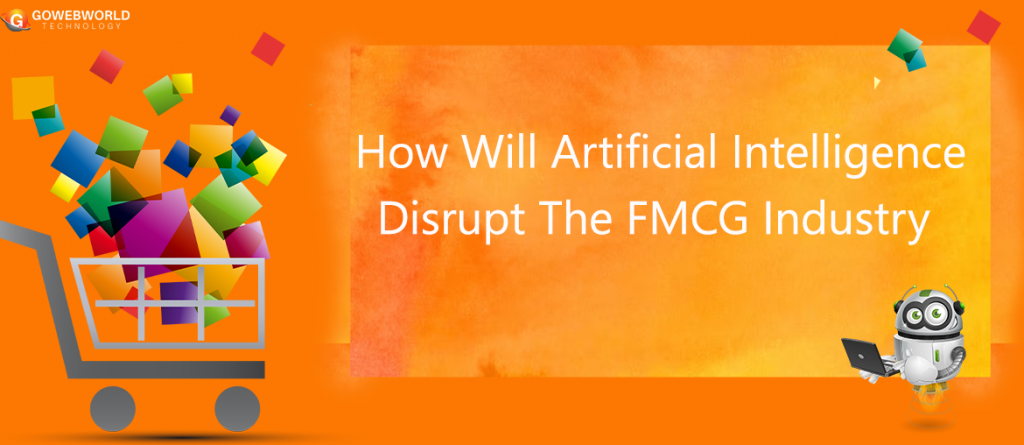Artificial Intelligence (AI) has the potential to disrupt the fast-moving consumer goods (FMCG) industry in several ways. Here are some key areas where AI can bring about significant changes:
Demand Forecasting: AI can enhance demand forecasting capabilities by analyzing vast amounts of data, such as sales history, market trends, weather patterns, and social media sentiment. This can help FMCG companies optimize their inventory levels, reduce stockouts, and improve overall supply chain efficiency.
Personalized Marketing: AI enables FMCG companies to deliver personalized marketing campaigns and targeted advertisements to individual consumers. By analyzing customer data, AI algorithms can identify patterns and preferences, allowing companies to tailor their offerings and promotions to specific customer segments. This level of personalization can lead to increased customer engagement, loyalty, and higher conversion rates.
Product Development: AI can play a crucial role in the product development process. By analyzing customer feedback, market trends, and competitor data, AI algorithms can identify gaps in the market and provide insights for new product development. AI can also assist in optimizing product formulations and packaging design based on consumer preferences and feedback.
Supply Chain Optimization: AI-powered supply chain management systems can optimize inventory management, production planning, and logistics. AI algorithms can analyze historical data, real-time information, and external factors to identify potential bottlenecks, optimize routes, and reduce costs. This can result in improved supply chain efficiency, reduced waste, and better response to market demand fluctuations.
Customer Service : AI-powered chatbots and virtual assistants can provide 24/7 customer support, answer queries, and assist with product recommendations. Natural language processing capabilities of AI can understand customer inquiries and provide relevant responses, improving customer satisfaction and reducing the need for human intervention.
Quality Control: AI can enhance quality control processes by automating inspections and identifying defects in real-time. Computer vision systems powered by AI algorithms can analyze product images or videos to detect anomalies, ensuring consistent product quality and reducing the likelihood of defective products reaching consumers.
Pricing Optimization: AI can help FMCG companies optimize pricing strategies by analyzing various factors such as customer demand, competitor pricing, and market conditions. AI algorithms can dynamically adjust prices in real-time to maximize revenue, considering factors like product popularity, seasonality, and customer behavior.
Overall, AI has the potential to revolutionize the FMCG industry by improving operational efficiency, enhancing customer experiences, and driving innovation. However, it’s important to note that while AI can bring significant benefits, careful implementation and ethical considerations are necessary to address potential challenges and ensure responsible use of the technology.
Supply Chain Visibility: AI can provide real-time visibility into the supply chain by integrating data from various sources such as sensors, RFID tags, and IoT devices. This enables FMCG companies to track products, monitor inventory levels, and identify potential bottlenecks or disruptions in the supply chain. Enhanced visibility helps improve efficiency, reduce lead times, and ensure on-time delivery.
Automated Reordering: AI can automate the reordering process for FMCG companies by analyzing inventory levels, historical sales data, and demand patterns. This can enable automatic replenishment of products, ensuring optimal stock levels without the need for manual intervention. Automated reordering can minimize stockouts, reduce carrying costs, and streamline inventory management.
Fraud Detection: AI algorithms can analyze large volumes of transactional data to detect patterns indicative of fraudulent activities. This can help FMCG companies identify and mitigate risks related to counterfeit products, supply chain fraud, or fraudulent financial transactions. By leveraging AI-powered fraud detection systems, companies can protect their brand reputation and safeguard consumer trust.
Sustainability and Waste Reduction: AI can support FMCG companies in their efforts to improve sustainability and reduce waste. By analyzing data on energy consumption, carbon emissions, and waste generation, AI algorithms can identify opportunities for optimization and recommend sustainable practices. AI can also assist in predicting demand and optimizing production to minimize overproduction and reduce food waste.
Market Insights and Competitive Analysis: AI-powered tools can gather and analyze vast amounts of data from various sources, including social media, online reviews, and market research reports. This helps FMCG companies gain valuable insights into consumer preferences, emerging trends, and competitive intelligence. By leveraging AI for market analysis, companies can make data-driven decisions, identify new opportunities, and stay ahead of the competition.
Voice Commerce and Smart Assistants: With the rise of voice-enabled devices and virtual assistants like Amazon Alexa and Google Assistant, AI can enable FMCG companies to tap into the growing market of voice commerce. By integrating their products and services with these platforms, companies can provide seamless voice-based ordering and personalized recommendations, enhancing convenience and accessibility for consumers.
Dynamic Pricing and Promotions: AI algorithms can analyze real-time data, including competitor pricing, consumer behavior, and market conditions, to dynamically adjust pricing and promotions. This allows FMCG companies to optimize their pricing strategies based on demand fluctuations, competitor actions, and customer segmentation. Dynamic pricing can improve profitability and competitiveness while ensuring pricing consistency across various channels.
Enhanced Product Recommendations: AI-powered recommendation systems can analyze customer data, purchase history, and browsing behavior to provide personalized product recommendations. By leveraging machine learning algorithms, FMCG companies can offer relevant cross-selling and upselling suggestions, increasing average order value and customer satisfaction.
These are just a few examples of how AI can disrupt the FMCG industry. As AI continues to advance, it will likely unlock further opportunities for innovation, efficiency, and customer-centric strategies in the FMCG space.

